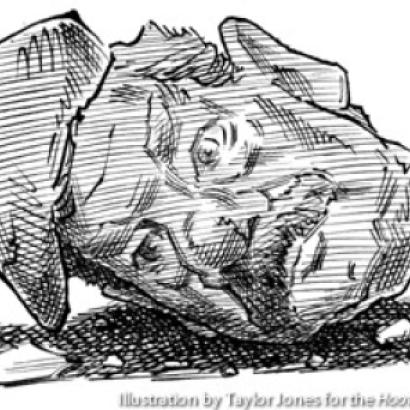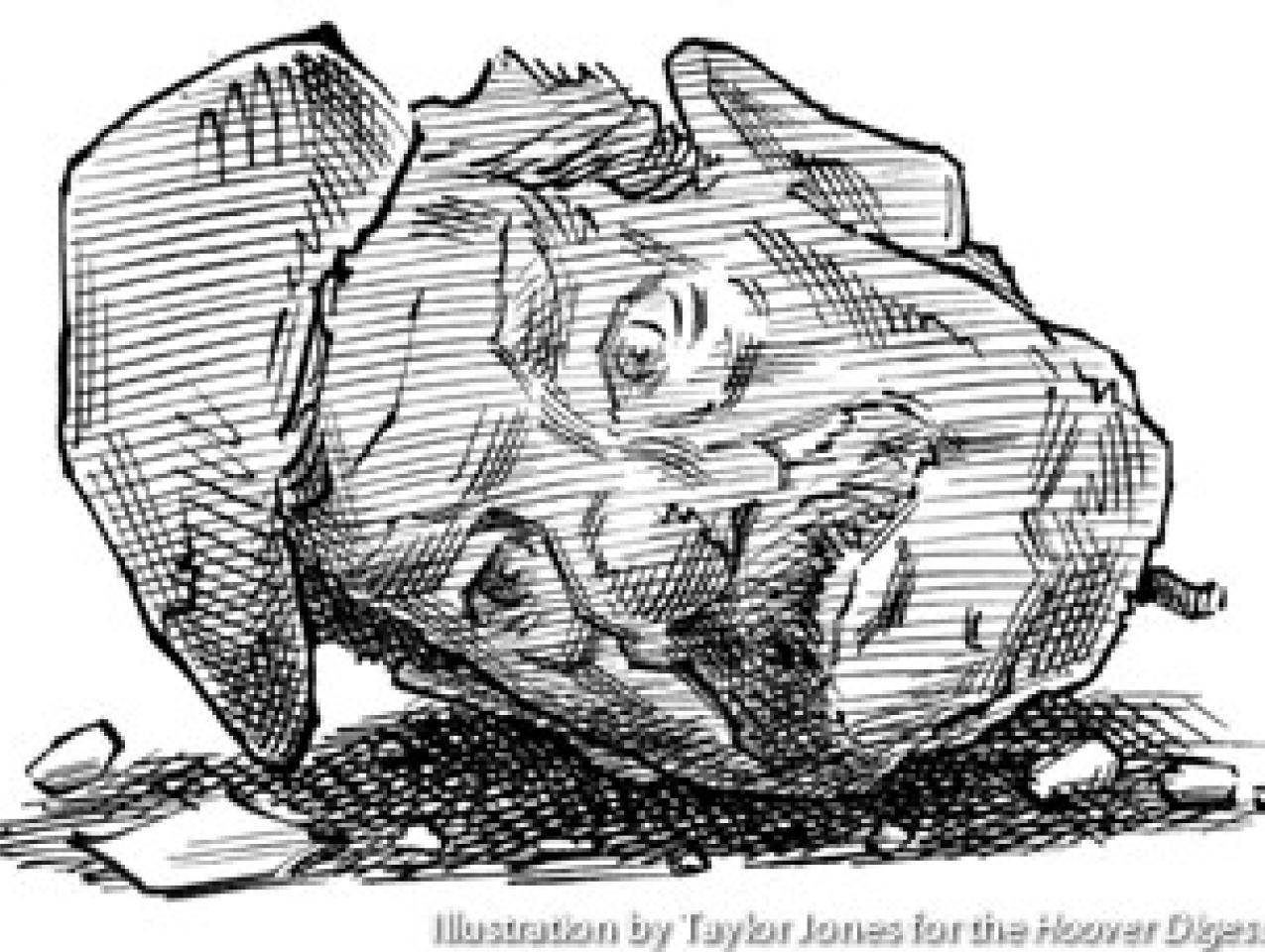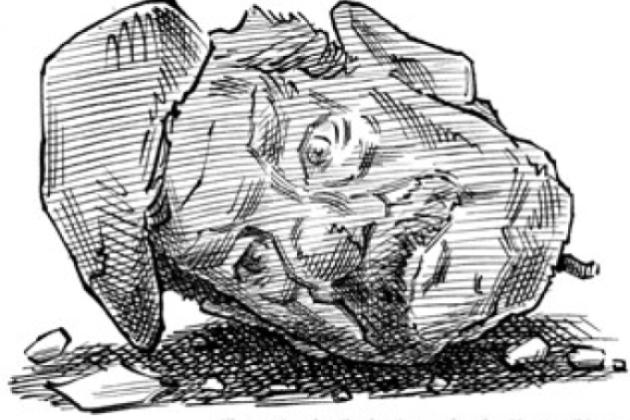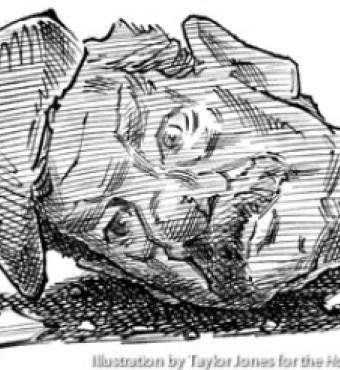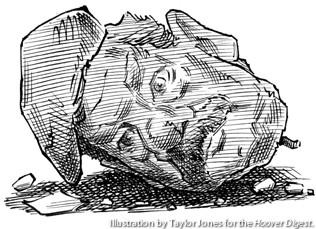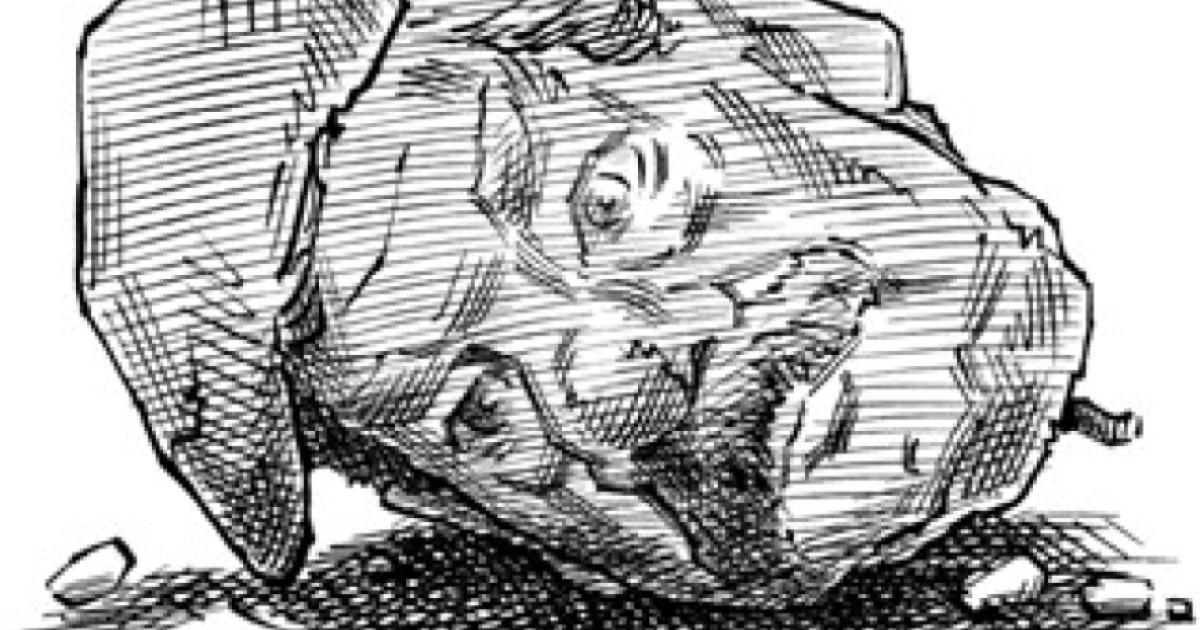- Security & Defense
- US Defense
- International Affairs
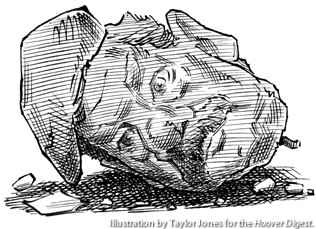
The thing about the nightmare scenarios was that, if even a few of them had come to pass, most analysts would have labeled George W. Bush’s decision to go to war against Iraq a disaster. But Saddam Hussein unleashed no Scuds against Israel, and the crazed notion of an Israeli nuclear response was never tested. Apparently influenced by the intense pre-war “psy-ops” campaign conducted by the United States, Iraqi sappers ignited few oil well fires and left their dams intact. Through the fall of Baghdad, Kirkuk, Mosul, and Tikrit, coalition forces found no weapons of mass destruction, let alone encountered them on the battlefield. Rather than structuring urban defenses in the tradition of Stalingrad, the Iraqis left Basra and Baghdad to the care of irregular forces; their elite Republican Guard divisions played Desert Storm redux, taking a pounding in the desert or dissolving into disorganized chaos.
Coalition forces suffered relatively light casualties. The greatest single U.S. loss occurred when a reserve unit of cooks and mechanics from Texas took a wrong turn and walked into an enemy ambush. The suicide bomber, the sniper, the soldier in civilian clothes proved more dangerous than the uniformed regular. There were incidents of terrorism that took American lives inside Iraq but none outside the country. The feared mega-incident in the United States was never attempted, despite the high domestic alert—or perhaps because of it.
Nor did the “Arab street” get out of control, despite the best efforts of Al Jazeera and other hideous mutations of journalism to rub the nerves raw with a never-ending display of Iraqi civilians killed and wounded, allegedly by coalition bombs and missiles. Anti-American demonstrators performed their acts in Jordan, Egypt, Yemen, and other Arab states. Turkish anger surfaced after a U.S. missile fell harmlessly in the southern countryside. But nowhere was political stability threatened. In fact, most demonstrations appeared to have been tolerated if not encouraged as safety valves by resident governments confident that political passions would subside as the situation on the ground in Iraq stabilized.
The war was won by high technology. Matched were a minor power, seriously depleted by war, sanctions, and forced disarmament, employing the technology of the 1970s, versus a mega-power equipped with twenty-first-century weapons. Jargon aside, Iraq fought the war with little information about what any given battlefield looked like, no aircraft, air defenses that had been suppressed by long-range or stealthy allied attack, little night-fighting equipment, tanks and other vehicles that had no means of detecting coalition forces until well within range of their weapons, no special forces to infiltrate coalition areas and take out or identify selected targets, and no dependable communications between the national command and the field.
That is why the debate between Defense Secretary Donald Rumsfeld and dissenting generals—which played out in the media during the brief period when coalition forces appeared stalled some 50–75 miles outside Baghdad—was won so convincingly by Rumsfeld. Weapons that can be delivered accurately from great distances are force multipliers. They reduce the number of ground troops needed. Perhaps many, including General Tommy Franks, head of U.S. Central Command, would have been more comfortable had the coalition delayed its offensive until the Fourth Mechanized Infantry Division—which had been scheduled to advance through Turkey before the Turks demurred—was in place. But the absence of those “boots on the ground” was barely felt as Iraq mounted a curious defense of Baghdad, leaving four Republican Guard Divisions to await their fates miles from the capital, never presenting the coalition with the need to confront a substantial force ensconced in a city of 5.2 million people. Perhaps Saddam Hussein concluded that, once inside Baghdad, his elite forces would turn their guns on the individual most responsible for their desperate plight, himself.
What Next?
We now enter a period when smart weapons will mean little and smart leaders, a great deal. During this period victories and defeats will be harder to quantify, public morale and support will require more than uplifting presidential statements, snappy ripostes by the secretary of defense, and stunning reports by embedded correspondents. The United States is, by virtue of the fourth Geneva Convention (1949), an “occupying power,” bound by international law to restore and maintain public order, provide for hygiene and public safety, and make sure that the needs of the population for food, water, and medical care are met. Extinguishing threats to the public safety is a critical precondition for many nongovernmental organizations (and perhaps the United Nations) to begin pumping relief supplies into the country. Other NGOs will decline to become involved until civilian government is restored.
The United States is also committed to bringing about conditions suitable to the development of representative government. Retired General Jay Garvin, “Iraq’s MacArthur,” has already brokered meetings with Iraqi political factions looking toward establishing an interim political authority. Now he must move swiftly to dismantle the Baath Party political apparatus and find civil servants capable of resuming their roles. The interim authority which he will knit together must balance returning exiles with indigenous community leaders. The exiles must be able to establish some identity other than that of “U.S. puppet”; the community leaders must not be fatally tainted by association with the ancient regime. With the active help of U.S. advisers, this authority must adopt a constitution that will define the sort of representative government the country can accept, the rights and duties of ordinary citizens, the checks on executive authority, and the rule of law to be observed. Of critical importance: The various factions—including the pro-Iranian Shiites who boycotted Garvin’s first conference and later demonstrated wildly against the U.S. presence—must calculate that they have more to gain by participating in the new government than in marshaling resistance to the American presence. The rapid restoration of Iraqi security forces—both military and police—subordinate to the interim authority could go far toward convincing Islamic fanatics that they are playing a losing game.
Again with the active assistance of the United States, Iraq’s damaged oil infrastructure must be restored, with production levels returned to at least pre-1990 levels. This will be a costly undertaking, but it is essential if Iraq is to help finance its own reconstruction.
The Obstacles
None of this will be easy. This does not appear to be a moment when Arab societies are enamored of Western role models. Islamic theocracies, with their passionate anti-Americanism, influence important segments of the Iraqi population, and the ghost of Gamel Abdel Nasser and his rabid pan-Arabism continue to inspire journalists and intellectuals from Baghdad to Damascus to Cairo. Simplistic charges of Zionist conspiracies resonate throughout the region, as though Israel were to blame for the Arab League’s 26 non-democracies, an Arab world illiteracy rate of 50 percent, or the culture’s shameful treatment of women.
Snipers, suicide bombers, and assorted terrorists will almost certainly target Americans and their Iraqi allies. Cries of U.S. Quisling will echo throughout the region. The optimistic notion that the establishment of a working democracy in one Arab country can contribute to a transformation of the entire region will be put to the test. Domestic critics will remind one and all of their pre-war admonition that Iraq has never provided hospitable soil for the transplanted saplings of democracy. The same could be said, however, of dozens of nations that have, during the past generation, experienced political freedom for the first time. Iraq does boast a great and deep civilization, educated elites, and a history of religious tolerance. These are not the only building blocks it will need to develop a representative government of limited powers. But they are a start.
Most important the Bush administration will have to move in ways that place the intervention in Iraq in the context of a coherent plan to combat international terrorism and renew efforts to resolve the Israeli-Palestinian conflict. As the war in Iraq wound down, the Bush administration leveled harsh criticism at Syria, which was accused of developing chemical weapons; shipping night vision equipment to Iraq; maintaining a porous border between the two states (permitting anti-U.S. irregular forces to filter into Iraq and senior Iraqi political and military figures to find their way out); and supporting international terrorist organizations. Syria denied the chemical weapons charge and moved swiftly to secure its border with Iraq. War with Damascus seems remote, but the administration clearly wants Syria to quit offering hospitality and training facilities to terrorist organizations, particularly Hezbollah, which is named on the U.S. list of terrorist organizations with a global reach. As does Israel, the administration seems prepared to tolerate the continuation of the 27-year Syrian occupation of northern Lebanon, but the price may be very tight control on the activities of the Iran-financed terrorists.
Ensuring quiet on Israel’s northern border is essential for progress on the “roadmap” drafted by the Group of Four—the United States, the European Union, the United Nations, and Russia—to get the Israelis and Palestinians back to the negotiating table. Clearly the administration is choosing to speak at a moment when it has the rapt attention of the leadership in Damascus.
Iran and North Korea may be left to simmer for a while, Iran because internal events could conceivably achieve more than external pressure, North Korea because the United States will be able to accomplish more if—as now appears possible—China, Russia, Japan, and South Korea begin to involve themselves more constructively in the region’s diplomacy.
The culmination of this period of war and diplomacy may well involve an effort to get the Israelis and Palestinians back to the negotiating table. If things go well with respect to both Iraq and Syria, Israel’s friends in the administration will likely seek to convince the Israelis that conditions in their neighborhood have been sufficiently improved to attempt a political settlement, beginning with a freeze on settlement activity and the withdrawal from heavily populated Palestinian areas to the lines observed before the current Intifada started. For their part, the Palestinians have selected a prime minister—Abu Mazen—who has never embraced suicide attacks against Israelis and who endorsed the Camp David peace agreement vetoed by Yasser Arafat. In his first test of strength with Arafat, Abu Mazen succeeded in appointing Muhammed Dahlan to a key security post. Dahlan favors cracking down on Hamas, Islamic Jihad, and other terrorist groups. Israel continues to insist that prior to commencement of talks the Palestinian Authority commits itself by word and deed to the battle against terrorism, and it seeks assurances that Abu Mazen and not Arafat will have the ultimate authority to make a deal. One sees few signs that Prime Minister Ariel Sharon would consider entering final-stage negotiations anytime soon were there no U.S. pressure to move in that direction. Nor is there any indication that he has devoted much thought to the compromises Israel must accept to achieve accord. For more than two years, Arafat’s treachery and the violent fanaticism of Israel’s Palestinian foes have made it unnecessary for Sharon to ponder these issues. His sole concern was neutralizing the suicide bomb epidemic. And to this moment he faces little internal political pressure from a population that no longer finds “land for peace” a credible hope but instead seeks separation from its Palestinian neighbor.
As the U.S. presence in Iraq is bound to be long and difficult, with episodes of violence and political frustrations punctuating even a successful enterprise, the United States may wish to pick moments when things are going well to rearrange its relationships within the region so as not to betray signals that can be interpreted by others as weakness. One such move could be the closing of air bases in Saudi Arabia. In addition to pre-positioning for a larger conflict, the bases were used to support “no-fly-zone” missions against Iraq, an exercise that will obviously be discontinued. The Saudi bases stir resentment in a culture where religious fundamentalism runs deep and the substantial Western military presence is widely resented. Pulling back after a successful terrorist attack or other embarrassing incident could be misinterpreted by adversaries as a sign of weakness. Doing so in the flush of a stunning military victory would convey no such message.
The invasion of Iraq represented a turn to preemptive or preventive warfare as a necessary and legitimate response to international terrorism. It put into action the conclusions drawn from the events of September 11: that deterrence is no longer a viable proposition in the age of terror, that those who support or sponsor terrorism will be treated no differently than terrorists themselves, and that the war against terrorism cannot be won if the war against weapons of mass destruction is lost. The military part of the effort was far easier than the politics to follow are likely to be. But on those politics hinge the verdict of history on the Second Gulf War.








